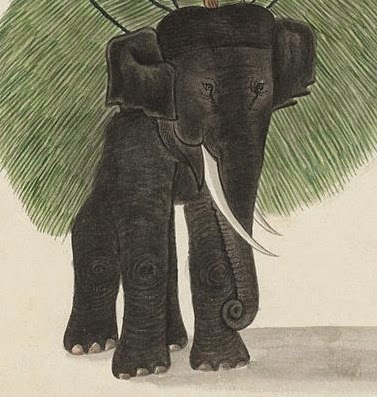The parrot said:
Back in the 18th-century, there was a pesky mosquito and
feisty hen that had the most unlikely friendship. Both creatures lived on an
almost abandoned farm owned by Mr. Rogers. The barn was a ghost town because many
of the horses were starving or had already died, and the other animals had been
sold, all except one hen (the mosquito wasn’t really owned by anyone since he
had free reign to leave when his little heart desired).
It was a hot afternoon day when the hen said to the insect,
“I am about tired of starving everyday.
Mr. Rogers is a decent fellow and all,
but a hen has got to eat. I’m planning on laying eggs soon.”
The mosquito replied with a mischievous tone, “I am getting
a bit hungry too…”
“Don’t even think about sucking my blood!” the hen snapped
back.
After a long, tiresome argument, the two agreed not to
exploit one another, but instead find relief somewhere else. So they ventured to the
neighboring farms to find some birdseed for the hen and a few healthy animals
for the mosquito to feast on.
To the right was Mr. and Mrs. Larky’s farm. They had a few
dozen cows and horses, but nothing more, so that option was out. To the left
was the Grizzly Bear Farm, yes, the farm only raised grizzly bears for people
to come out and shoot their game. We didn’t associate much with those people.
The hen said, “You don’t really have to guess why,” as she
rolled her wing around in a circle next
to her head.
The next option was a fit for them both – the Chumnut family
who lived just across the street! They raised cows, horses, chickens, donkeys, rattlesnakes, cats – you name it, they owned it. After a long rest at dusk, the two decided
to go out in the middle of the night to prevent someone from hearing them.
They were now steps from the fence blocking the green
pasture from the busy road. The mosquito, riding on the hen’s head, gave the
bird a tap on the noggin and told her to head on over. One step, two step,
three step……
“OUCHHHHH!” yelled the hen.
She continued screaming, “I just had a lightening bolt rattle
my whole body - organs and all!"
Not long after, the ranch man came out of his
house to see this chicken toasted from the shock of the electric fence.
He scooped her fragile body up in his calloused hands and carried her to his barn, where he proceeded to feed the hen some birdseed. That was all she
really wanted.
The mosquito returned to his
old farm with an empty stomach.
No pain, no gain.
Author's Note: The original story, “
The Elk and the Ass,” in the
UN-Textbook (2014), was about two animals venturing over to a farm to graze the
field together. The ass got in a giddy mood and decided to sing. This act woke
up the gardener and master of the house. They then decided to take them
prisoner.
The narrator, the parrot in “Tales of a Parrot”, told this
whole story. He told this story to teach his master’s wife a lesson.
I changed it up to teach a lesson, but one about working for
what you want (no pain, no gain). While the two animals should not have gone over to the Chumnut Farm
to steal food or animal blood, the hen had to go through a full body electrical
shock in order to get fed. The mosquito left with an empty stomach because he
didn’t have to go through any pain to receive food (blood). This version also
had a much happier ending than the original story where the men took the two
animals captive.

.jpg)




.jpg)








